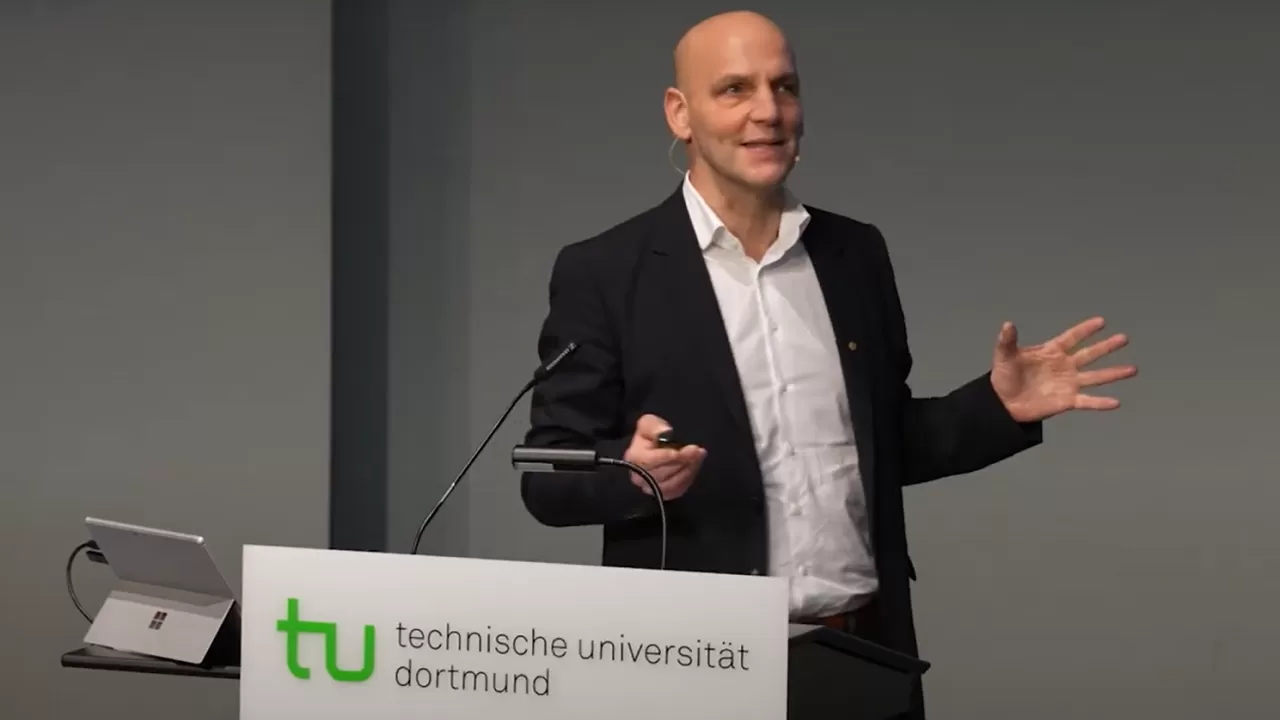#2 Benjamin List

Benjamin List received the Nobel Prize in Chemistry together with Berkeley-based researcher David McMillan in 2021. He was awarded the prize for his development of asymmetric organocatalysis, a new technique that can be used in the development of drugs and chemical products. Catalysts are able to break and forge new chemical bonds without being changed by the reaction themselves. Classic examples of catalysts are proteins as well as metal compounds. List was working on the amino acid proline and demonstrated that it could very easily be used as a catalyst, potentially offering huge benefits for the pharmaceutical industry. As proline is an organic catalyst, it is far more environmentally sustainable than the metal compounds that are normally used for catalytic processes. His discovery has therefore played a crucial role in advancing green chemistry.
List studied at Freie Universität Berlin and completed his PhD in Frankfurt. He has been director of the Max-Planck-Institut für Kohlenforschung in Mühlheim (an institute researching all fields of catalysis) since 2003. He gave this recorded lecture (beginning at 7 minutes 10 seconds) at TU Dortmund on February 8, 2023, just over a year after being awarded the Nobel Prize. Benjamin List’s enthusiasm for his specialist field—catalysis research—will no doubt have left an impression on the audience listening in the austere Dortmund lecture hall. As we hear, catalysis is for List “the most beautiful” research area in the entire field of chemistry because it has “magical” qualities. Catalysis allows us to come “as close as possible to sorcery” because it breaks chemical bonds and forms new ones without the catalyst being consumed. We are told that catalysis is a universal principle connected to photosynthesis and its use in countless applications, such as food security, transportation, and the production of synthetic materials, testifies to its importance. That is why List describes catalysis as one of “humankind’s most important cultural achievements.” And with passion and humor, he outlines how he himself has significantly advanced the development of catalysis.
Thanks to his work, it is now possible to carry out organic catalysis using an amino acid that is both environmentally friendly and efficient. Johan Äqvist, Chair of the Nobel Committee for Chemistry, described List’s model as being “as simple as it is ingenious.” In Benjamin List’s Dortmund lecture, we find out what organic catalysis can do and where it might take us. The key message is that, when used in the right way, chemistry can be green, as List so compellingly demonstrates.
Peter-André Alt
Date February 8, 2023
Length 40 mins (lecture begins around 7 min 10 sec)
Title, series Catalysis for a better world, “Initialzündung” lecture series at TU Dortmund
Language German
Video TU Dortmund University